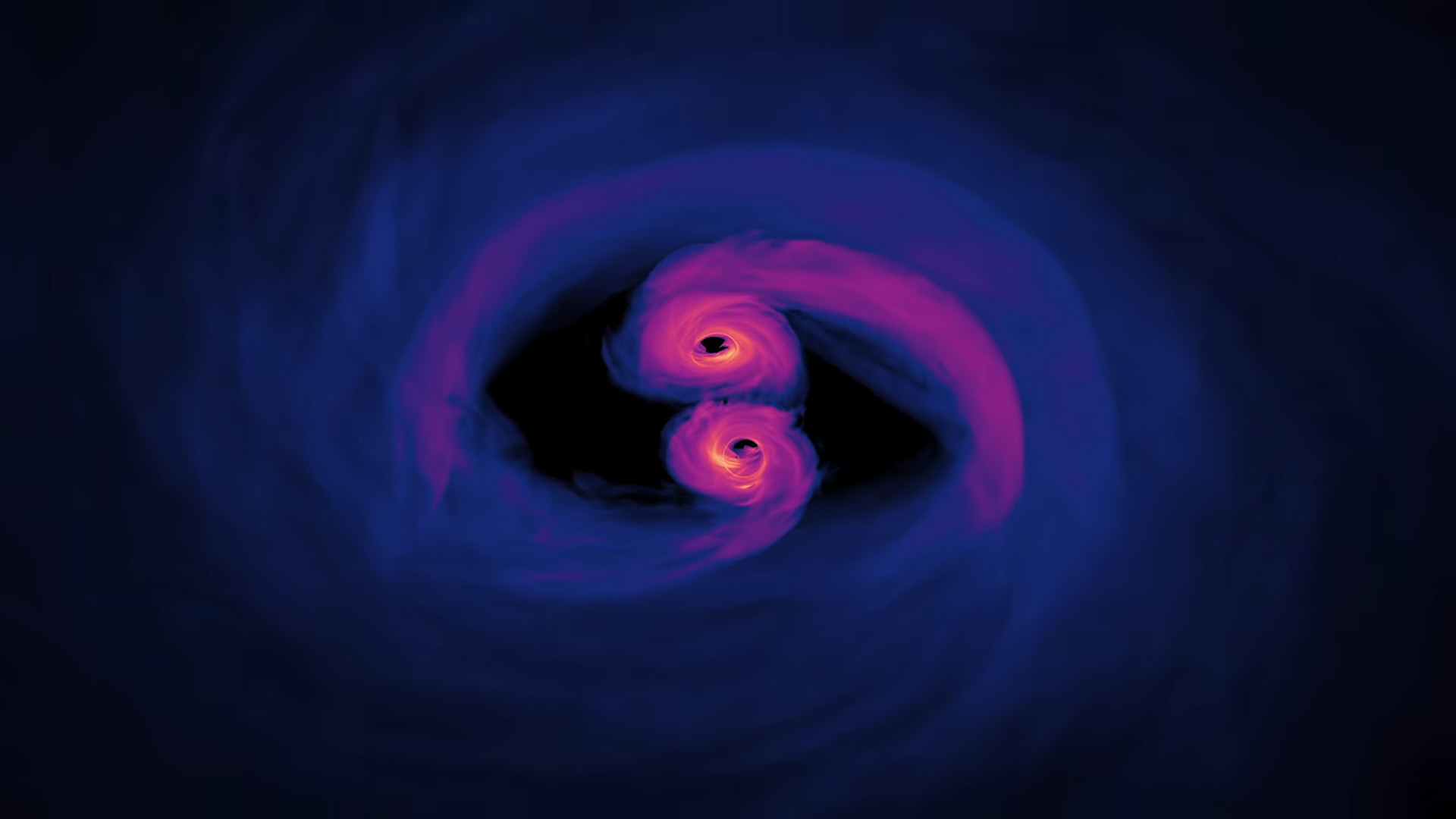A new model could provide scientists with a better idea how gravitational waves, or ripples, created by colliding black holes affect the very fabric of space-time. The new model is part of research documented in a new paper published in the journal Physical Review Letters. According to the paper, when black holes collide or merge, they send a series of “rings” throughout the universe.
This new model is important because it finally gives scientists a way to measure exactly how these ripples interact with one another as they travel through space-time. Being able to present a clearer picture of how colliding black holes create these ripples could also teach scientists more about the collisions themselves.
Scientists plan to use gravitational wave detectors, such as the Laser Interferometer Gravitational-Wave Observatory (LIGO) to study the rippling events created by these black hole collisions. Previous models have always relied on linear mathematics without ever looking at how the waves influence each other. By looking at it with a new model, though, we could finally understand colliding black holes better.

The foundation of this new model was created by the Simulating eXtreme Spacetime (SXS) team. The program, which is run off of a supercomputer, simulates colliding black holes to better study the ripples created by the mergers. This allows the scientists to dig deeper, revealing non-linear effects that scientists haven’t picked up on otherwise.
The big hope here is that the new findings will help pave the way for the next generation of gravitational wave detectors. Further, doing this would allow us to broaden our understanding of colliding black holes and how those massive mergers actually affect our universe’s very foundation. Additionally, it will help us determine if general relativity is the correct theory of gravity for black holes.
Black holes are also teaching scientists more about how the universe expands, and some even believe that these cosmic mysteries could be massive alien-created supercomputers for quantum data.








